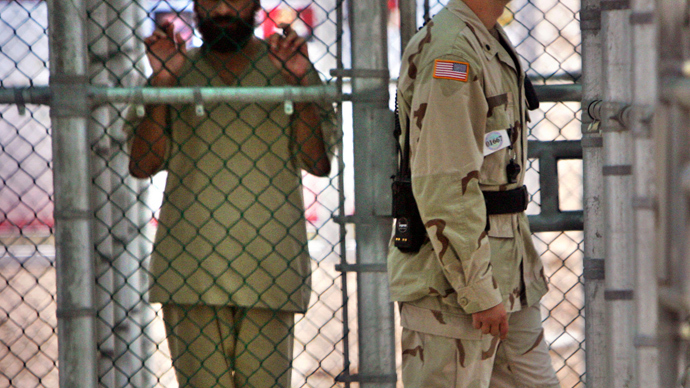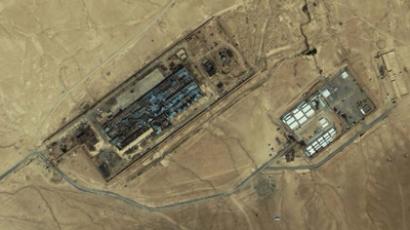We were subjected to 'meticulous, daily torture' – freed Gitmo detainee

After years of being held at the US Naval Base in Cuba without trial, Ibrahim Idris, one of two Sudanese detainees released on Thursday, said US prison officials had "systematically tortured" him in the course of his 11-year imprisonment at Gitmo.
Idris, who has been described by US officials as mentally ill, delivered his comments in a news conference in Khartoum, just hours after returning home courtesy of a US military plane.
Appearing weak and speaking with apparent difficultly, Idris gave a brief account of his lengthy imprisonment at Gitmo.
“We have been subjected to meticulous, daily torture," he said. "We were helpless…on an isolated island, surrounded by weapons."
He praised the Sudanese government and human rights organizations for working to secure the release of prisoners at Gitmo, which has been called “the GULAG of our times” by Amnesty International. Closed-door military tribunals, for example, have been riddled with problems, including courtroom speakers that have a mysterious tendency for being blocked during key testimony.
Another released detainee, Noor Othman Muhammed, was unable to attend the conference because he was recovering in the hospital, Idris said.
On Feb. 18, 2011, Muhammed pleaded guilty in a military tribunal to offenses under the Military Commissions Act of 2009, and was sentenced to 14 years confinement, according to a Defense Department news release. In exchange for his guilty plea and Muhammed's cooperation with prosecutors, the military court agreed through a pre-trial agreement to suspend all confinement in excess of 34 months.
Idris, who had been designated for transfer since 2009, said some of the former prisoners had pled guilty in a bid to secure their freedom.
As Barack Obama wins congressional approval to transfer some prisoners from Guantanamo Bay to their home countries, a released Sudanese inmate spoke of the torture he and others endured at the hands of their American jailers. Approval for a partial detainee release is contained in the National Defense Authorization Act, which passed the Senate by an 84-15 vote on Thursday night.
"While the bill does not address all of the administration's concerns, its provisions ... will provide the administration additional flexibility to transfer detainees abroad consistent with our national security interests," White House spokesman Jay Carney said earlier Thursday.
Of those still held in the prison, five individuals stand accused of participating in the Sept. 11, 2001 terrorist attacks. At the same time, some four dozen detainees are considered “too dangerous” to be released.
About half of Gitmo's 158 detainees have been cleared to be released since 2009, yet congressional restrictions prevented that from happening.
‘Special’ treatment for hunger strikers
A new outbreak of hunger strikes happened in early 2013. By July, 106 of the 166 detainees were on hunger strike, with 45 of them being force-fed.
According to Idris, those inmates who participated in these protests were “doubly tortured.”
In November, a 19-member task force concluded in a 269-page report, entitled 'Ethics Abandoned: Medical Professionalism and Detainee Abuse in the ‘War on Terror', that since September 11, 2001, the Department of Defense (DoD) and CIA ordered medical professionals to assist in intelligence gathering, as well as forced-feeding of hunger strikers, in a way that inflicted “severe harm.”
Gitmo officials announced earlier this month that the US military will no longer disclose to the media and public whether prisoners at Guantanamo Bay are on hunger strike, explaining that "the release of this information serves no operational purpose."
This decision has deprived detainees of an effective means of protesting the conditions of their detention.
As Obama moves to release more detainees, he can expect strong opposition from many Republican lawmakers, including not least of all former Vice President Dick Cheney, who has argued strongly that Guantanamo should be kept open.














